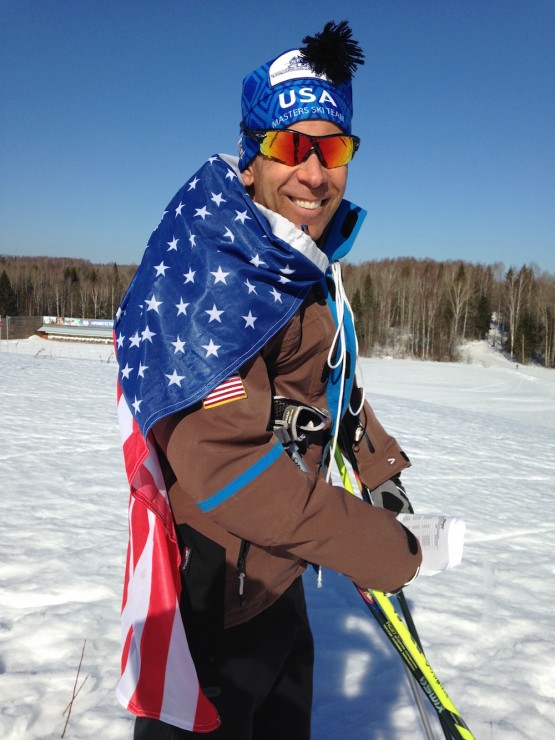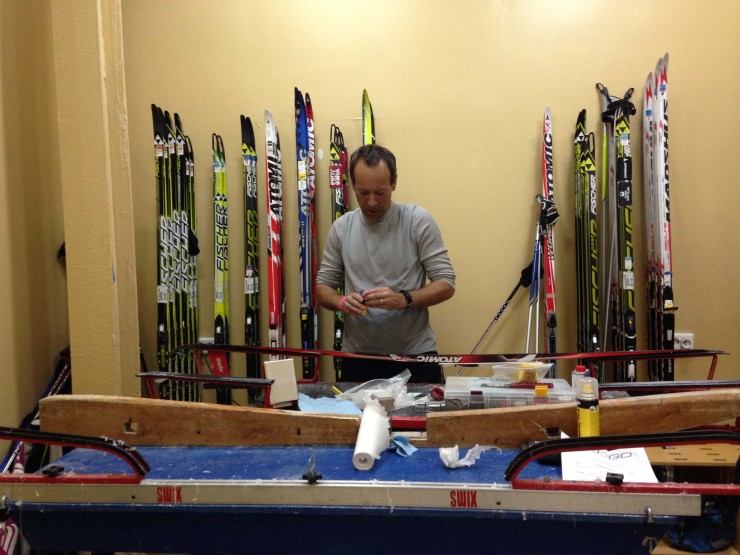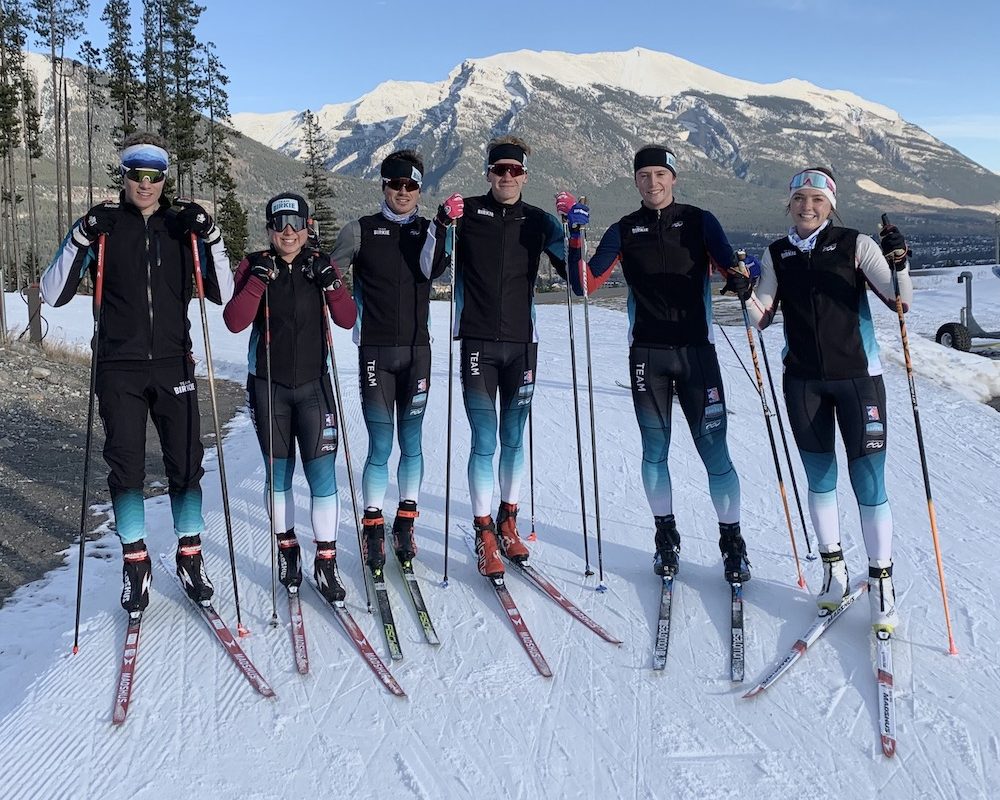
Late last month, John “J.D.” Downing of Bend, Ore., was elected president of the World Masters Cross-Country Ski Association (WMA), putting him at the helm of the international organization that governs master skiers in the International Ski Federation (FIS).
Pointing out that master skiing is much more than the big loppet events, Downing, who founded XC Oregon and has been involved in international cross-country skiing for more than four decades, said in a phone interview that he wants to get more masters involved in racing, both internationally and locally.
“In some capacity I’ve been part of just about every type of nordic ski event imaginable over the past 41 years, and I really believe the MWC [Masters World Cup] format is one of the most enjoyable to be around,” Downing said. “You get the fantastic energy of international participation of the big marathons, but with easier logistics and a more intimate ski experience out on the trails. I also love the fact that skiers of any ability can enjoy an annual world championship with their peers, discovering all these fantastic ski places around the world.”
As president of the WMA, Downing, 49, wants to reduce the logistics and organizational requirements necessary for attending and hosting a Masters World Cup, an annual, competitive world championship for skiers ages 30 and older, which attracts more than 1,000 athletes annually from across the globe.
FasterSkier: What attracted you to this position, and what do you hope to accomplish during your term?

“I have really enjoyed the past 11 years working with the WMA as the USA national director, and when it became apparent that there wasn’t a long list of directors that were able or willing to step into the president shoes, taking on the added responsibility, it just made sense at this time for me,” Downing said.
“Honestly, the biggest thing I hope to accomplish is having the WMA become more of a team effort with even the minimal administrative functions we have to perform each year. I’ll have a full plate the next several MWC events leading what should be increasingly bigger Team USA contingents, but I’m confident we’ll see multiple other directors and officers embrace different tasks within the WMA, which is exactly the way a non-profit international organization led by volunteers should function.”
He added that the association is already working on a few new elements within the event design for Masters World Cups that will come into play after the 2016 MWC in Vuokatti, Finland, which could make the championships appeal to a wider group of master skiers.
“We would like to reduce the time commitment at the MWC for skiers, particularly younger masters. We also want to keep the event as practical to manage as possible for future organizers, so there are some ideas being worked on in that area as well,” he said.
FS: What are some of the challenges facing the association, and what issues need to be addressed?
“The biggest issue by far is a gradual reduction in worldwide numbers of what I call motivated masters,” Downing said. “The biggest ski events are generally doing very well, and the MWC numbers are holding steady. But we are seeing a clear decline in motivation and numbers of master skiers at the grassroots level around the world. Skiers under the age of 55 are particularly hard to keep ‘in the game.’ ”
He added that some of the underlying issues of this gradual decline are beyond the scope of the WMA, including climate change.
“There are many factors involved in this decline that the WMA can’t really address. Annual consistent snow in ski regions worldwide being first and foremost. But we do need to find ways to motivate and interest more adult skiers in the basic concept that there is more to this sport than just taking part in one or two big loppets every year.
“We’ve got an amazing lineup of MWC events coming up, and I urge every skier over 30 to consider taking part in a future Masters World Cup,” he added. “Vuokatti in 2016, Klosters in 2017, Minneapolis in 2018, and then next fall, we hope to confirm Beitostølen, Norway, for 2019 MWC, which would keep the positive momentum going.”
“We’ve got an amazing lineup of MWC events coming up, and I urge every skier over 30 to consider taking part in a future Masters World Cup.” — World Masters Association President J.D. Downing
The last time the MWC was in North America was in 2011 in Silver Star, British Columbia. In 2008, the MWC was in McCall, Idaho.
Additionally, most of the national masters associations host national championships in varying locations. In the U.S., that organization is American Cross Country Skiers (AXCS), which Downing also heads. This season, the 2016 National Masters Championships will be held at Royal Gorge in California.
Downing has been the U.S. national director since 2004, and will continue to lead the AXCS while being MWA president. He does not anticipate that the additional responsibilities of the presidency to detract from his national role.
“There are some practical economic advantages for both AXCS and WMA in having me do both jobs, especially with the MWC 2018 in Minneapolis coming up fast,” he said.
The WMA Legacy
On Sept. 25, Downing was elected president of the WMA during the the association’s annual conference in Klosters, Switzerland. He takes over for Germany’s Thomas Heckmann, who served as WMA president since 2009, but stepped down this past spring because of business demands. WMA Technical Vice President Klaus Pleyer served as an interim president this spring and summer until the election.
The World Masters Association consists of national directors from every country that fields teams at the Masters World Cup. Every year, the WMA meets to determine business regarding master skiers, review rules and regulations, and select a host and destination for the next Masters World Cup championships, much like the annual FIS general assembly.
The MWC is the biggest event of its kind for age-group skiers, and the bidding process to host the MWC is much like that of the regular FIS Nordic World Championships with potential host destinations submitting their bids to the WMA for review. WMA officials then visit the host destinations and vote on the options.
Inge Scheve
Inge is FasterSkier's international reporter, born and bred in Norway. A cross-country ski racer and mountain runner, she also dabbles on two wheels in the offseason. If it's steep and long, she loves it. Follow her on Twitter: @IngeScheve.



